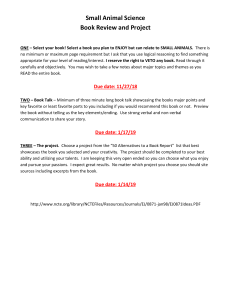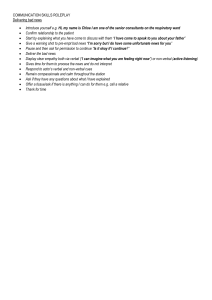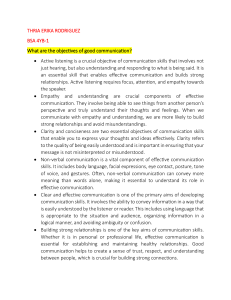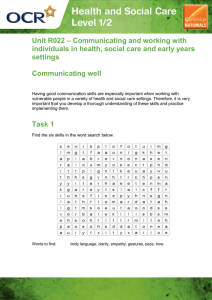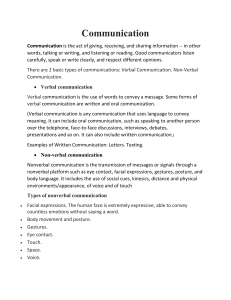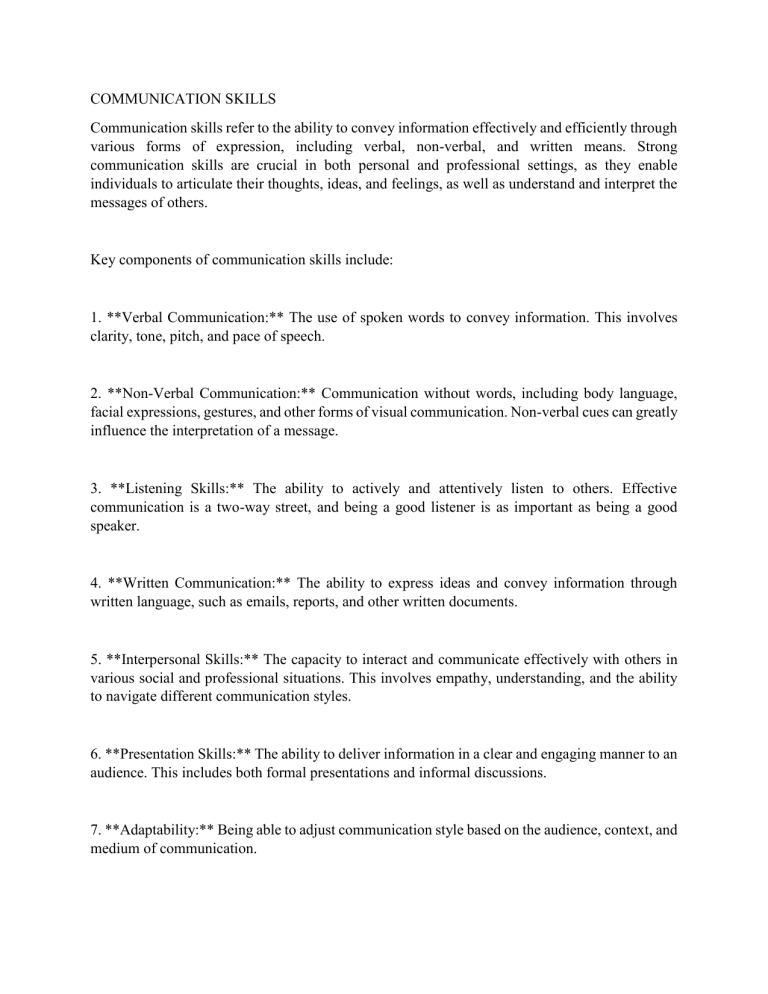
COMMUNICATION SKILLS Communication skills refer to the ability to convey information effectively and efficiently through various forms of expression, including verbal, non-verbal, and written means. Strong communication skills are crucial in both personal and professional settings, as they enable individuals to articulate their thoughts, ideas, and feelings, as well as understand and interpret the messages of others. Key components of communication skills include: 1. **Verbal Communication:** The use of spoken words to convey information. This involves clarity, tone, pitch, and pace of speech. 2. **Non-Verbal Communication:** Communication without words, including body language, facial expressions, gestures, and other forms of visual communication. Non-verbal cues can greatly influence the interpretation of a message. 3. **Listening Skills:** The ability to actively and attentively listen to others. Effective communication is a two-way street, and being a good listener is as important as being a good speaker. 4. **Written Communication:** The ability to express ideas and convey information through written language, such as emails, reports, and other written documents. 5. **Interpersonal Skills:** The capacity to interact and communicate effectively with others in various social and professional situations. This involves empathy, understanding, and the ability to navigate different communication styles. 6. **Presentation Skills:** The ability to deliver information in a clear and engaging manner to an audience. This includes both formal presentations and informal discussions. 7. **Adaptability:** Being able to adjust communication style based on the audience, context, and medium of communication. 8. **Clarity and Conciseness:** Communicating ideas in a clear and concise manner to avoid confusion or misunderstandings. 9. **Feedback and Constructive Criticism:** Providing and receiving feedback in a constructive manner to foster continuous improvement in communication. Effective communication skills are vital for success in various aspects of life, including professional relationships, teamwork, leadership, and personal interactions. Continuous development of these skills can lead to more meaningful connections, improved collaboration, and enhanced problem-solving abilities.
